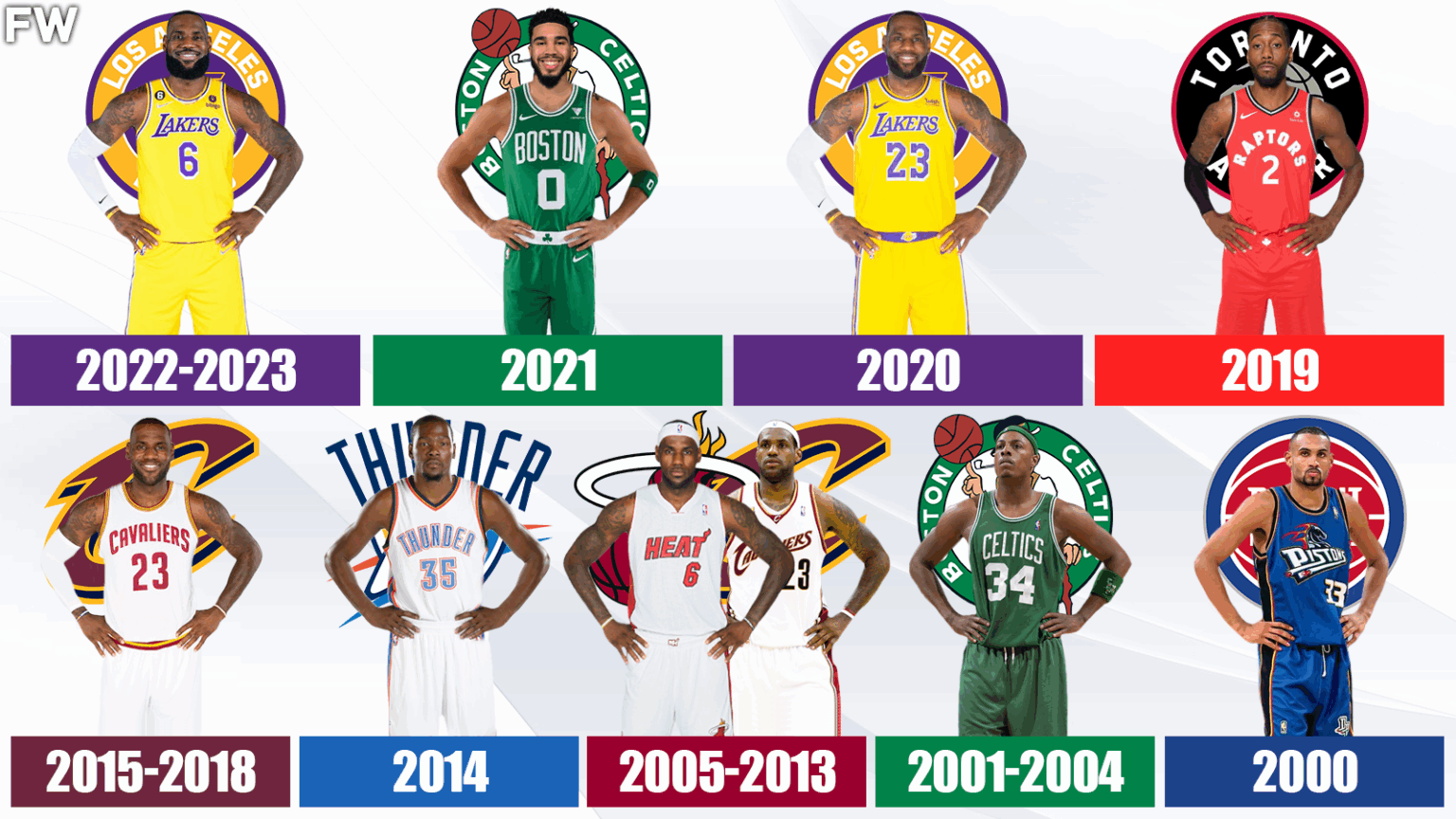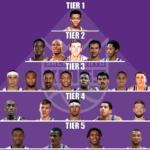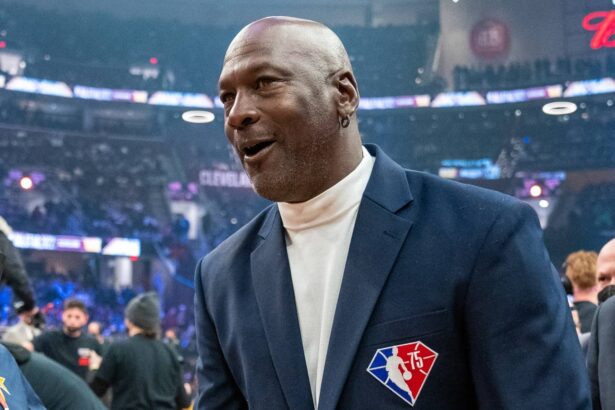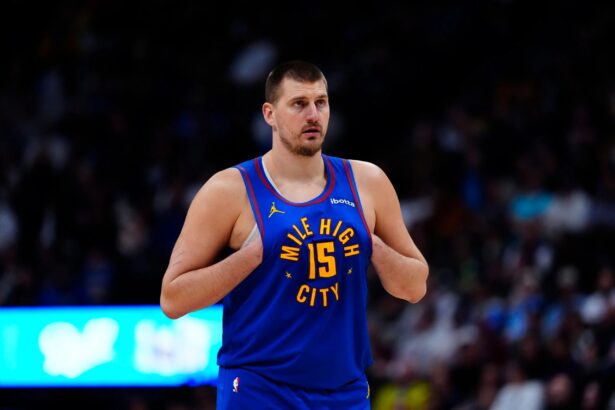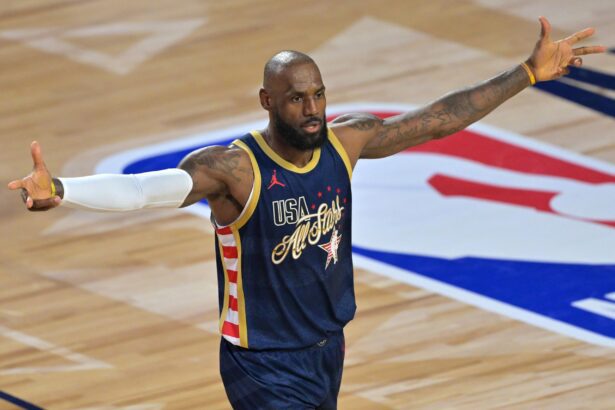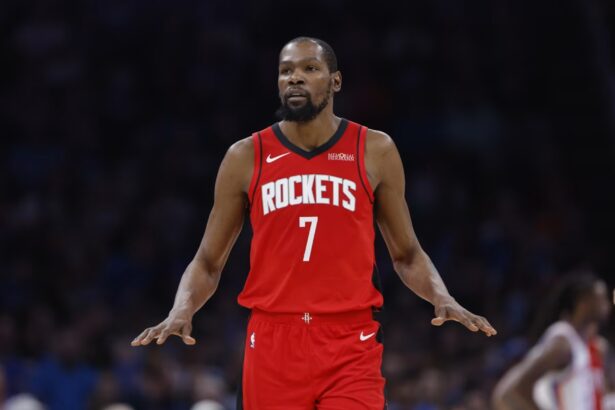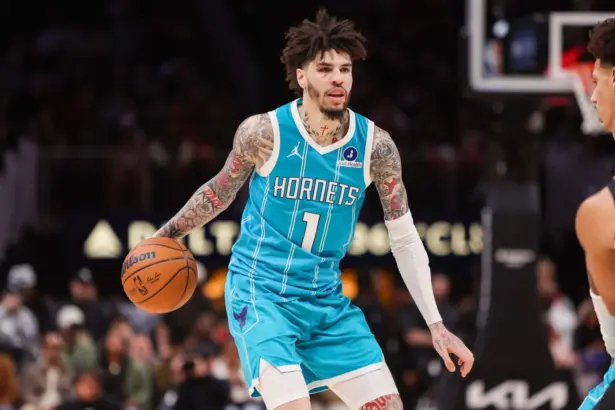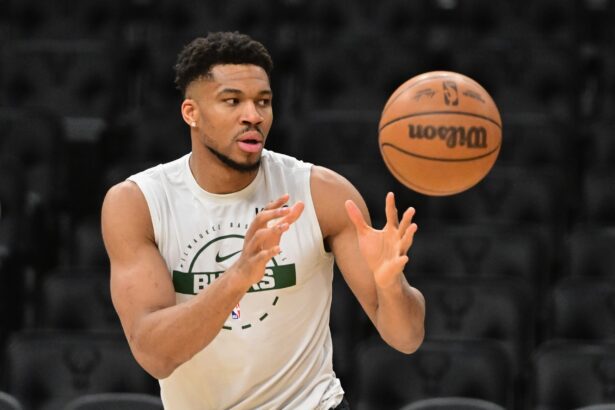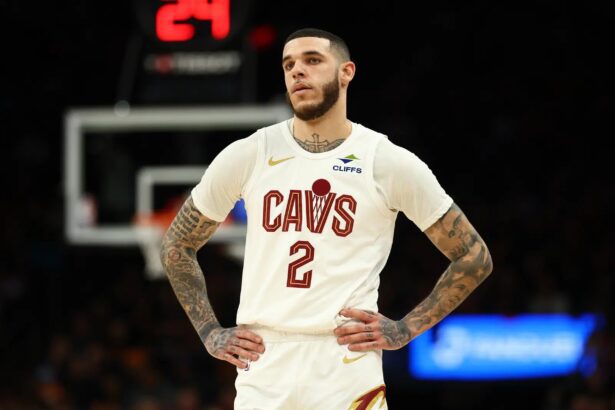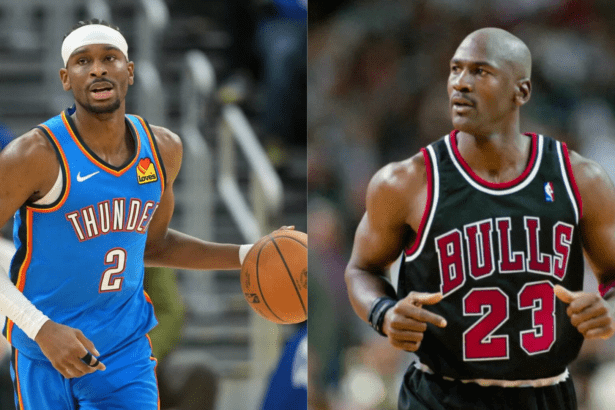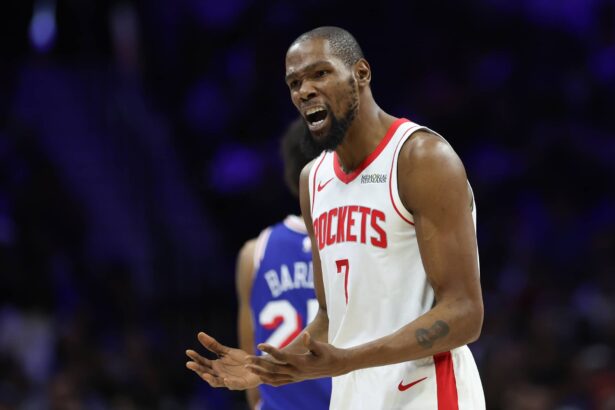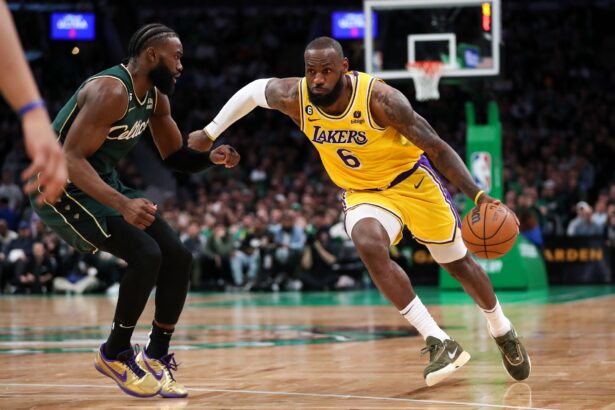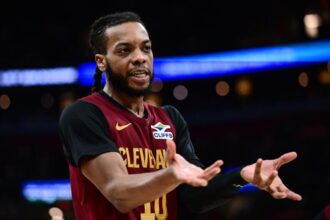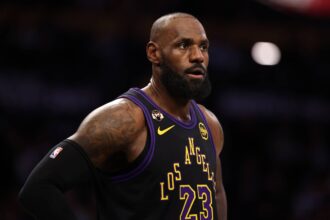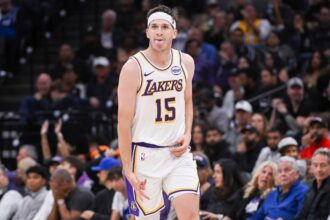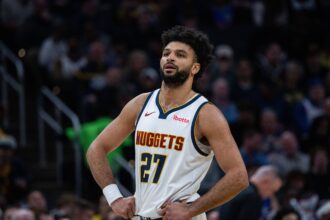- Has there been a challenge for the title of the best small forward over the past two decades?
- Some of the best players in the game today are small forwards
- Ten small forwards won Finals MVP awards since 2008
We have seen a dynamic evolution of talent and style of play over the past two decades. Among the key positions on the basketball court, the small forward has consistently been a focal point of attention due to its versatility and ability to impact the game in various ways.
From scoring to defending, facilitating to rebounding, the NBA small forwards have continually showcased their skills, making their presence felt on both ends of the court.
While Larry Bird essentially changed the NBA at his small forward position, his dominance was mainly seen in the 1980s with the three-time champion Boston Celtics. After his dominance ended, the small forward position was run by a select few superstar players before a certain player overtook the rest.
In fact, the list is filled with legendary names and rising stars. After seeing the greatest point guards since 2000 and even the best shooting guards, It is time to explore the dynamic and ever-evolving landscape of the NBA’s small forward position and celebrate the incredible talents who have left an indelible mark on the game over the past two decades.
Here is the best small forward in the world every year since the 1999-00 NBA season.
2000: Grant Hill
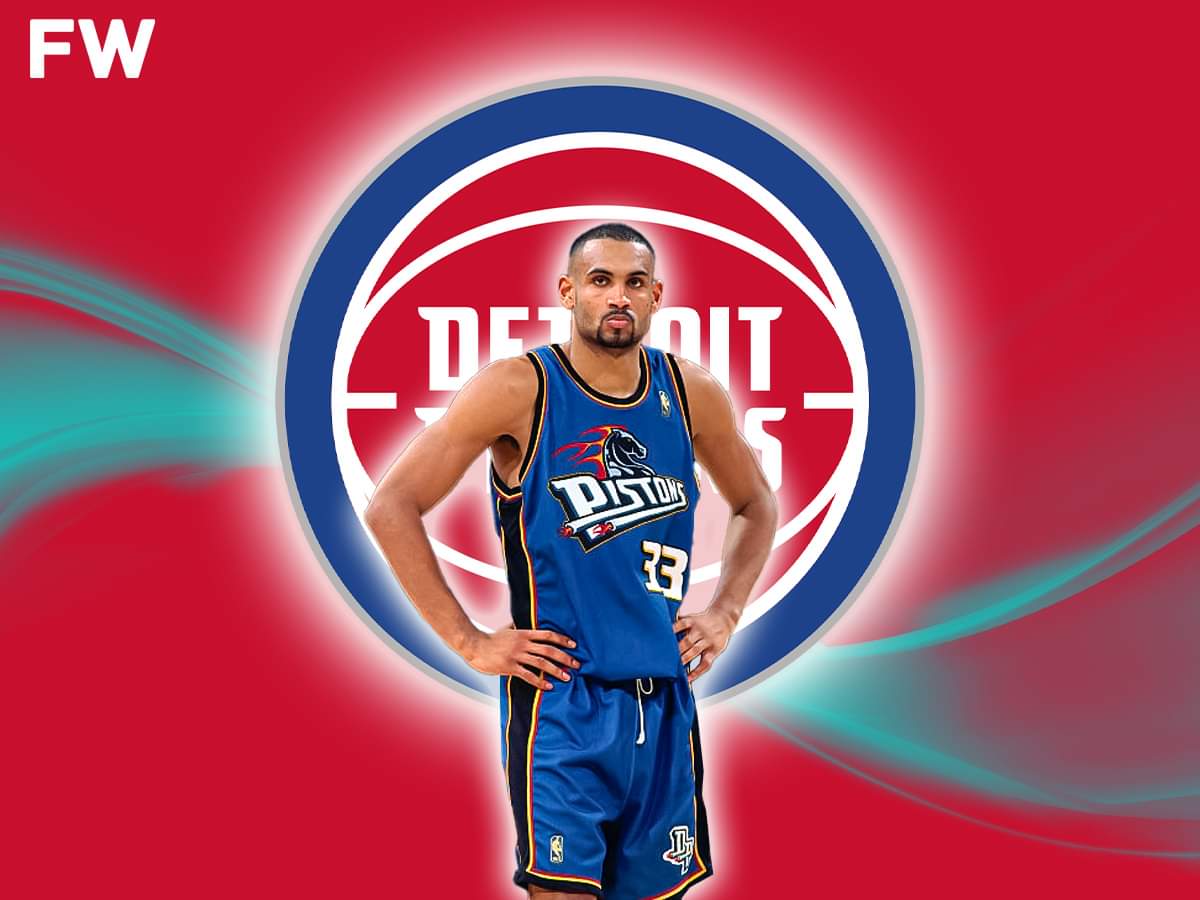
Career Stats: 16.7 PPG, 6.0 RPG, 4.1 APG, 1.2 SPG, 0.6 BPG
Career Honors And Awards: 7x All-Star, 5x All-NBA Team Selection, 1994-95 Rookie of the Year, 1994-95 All-Rookie Team Selection, Hall of Fame
With Vince Carter mainly regarded as a shooting guard for the early part of the 2000s, the small forward position was shuffled between a few stars. One of them was Grant Hill, the man who was supposed to be the next Michael Jordan before injuries derailed his career following the 1999-00 season. Speaking of the 2000 season, Hill was the man in the NBA.
He averaged 25.8 points per game, ranking him third among the top scorers in the league. He was capable of scoring in various ways, including mid-range jumpers, drives to the basket, and even three-pointers, making him a constant offensive threat. He was not just a scorer; he was an excellent playmaker, as he averaged 5.2 assists per game.
Hill could also guard multiple positions effectively and averaged 1.4 steals per game in the 2000 season. His defensive prowess made him a valuable asset in shutting down opposing players, and we were seeing a star who could do anything on the NBA floor.
Hill’s leadership qualities helped unite the team and contributed to their success. Grant Hill played a significant role in leading the Pistons to a 42-40 record in the 1999-00 season.
While they didn’t win a championship that year, he was the driving force behind their competitiveness and playoff appearance as a 7th seed despite a lack of other star players around him. Unfortunately, Hill would never recover his superstar form following this season due to injuries.
2001-2004: Paul Pierce
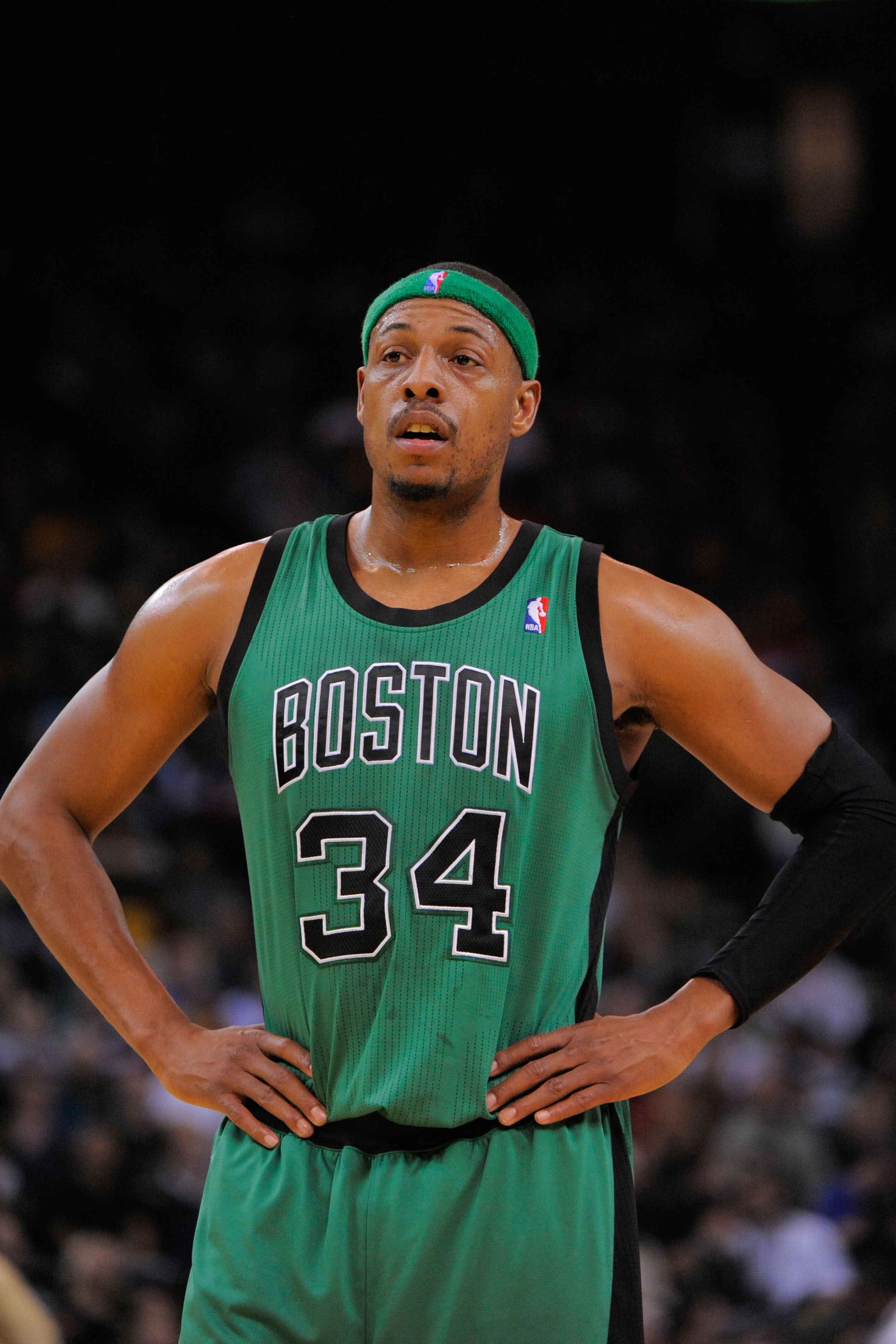
Career Stats: 19.7 PPG, 5.6 RPG, 3.5 APG, 1.3 SPG, 0.6 BPG
Career Honors And Awards: 2007-08 NBA Champion, 2007-08 Finals MVP, 10x All-Star, 4x All-NBA Team Selection, Hall of Fame
Again, with Vince Carter mainly recognized as a shooting guard during the early 2000s, Paul Pierce was the natural selection at small forward between 2001 and 2004. Known as “The Truth”, Pierce was a go-to scorer and leader that carried the Boston Celtics during very difficult times during this period.
Pierce was an elite scorer during this era. From the 2000-01 season through the 2003-04 season, he averaged 25.1 points per game, consistently ranking among the league’s top scorers. His ability to score in various ways, including three-point shooting, mid-range jumpers, and attacking the basket, made him a scoring machine.
Perhaps one of the most significant factors in establishing Pierce as the best small forward during this time was his role in the revitalization of the Boston Celtics.
Under his leadership, the Celtics made significant strides, improving from a struggling team to a contender in the Eastern Conference as the team made the playoffs in 2002, 2003, and 2004. In 2002, the Celtics reached the Eastern Conference Finals with Pierce as their leader.
2005-2013 – LeBron James
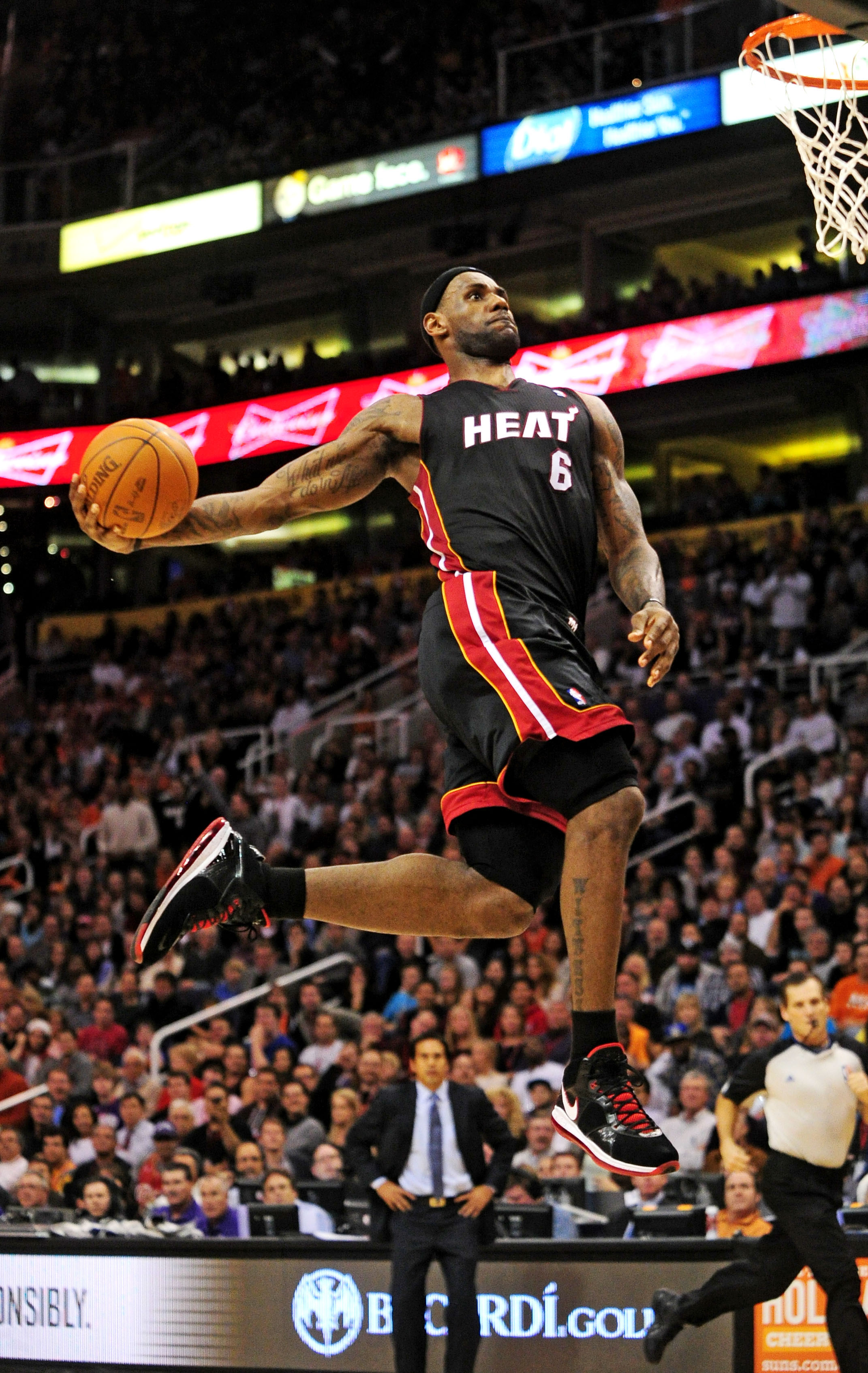
Career Stats: 27.2 PPG, 7.5 RPG, 7.3 APG, 1.5 SPG, 0.8 BPG
Career Honors And Awards: 4x NBA Champion, 4x Finals MVP, 4x MVP, 19x All-Star, 19x All-NBA Team Selection, 6x All-Defensive Team Selection, 2007-08 Scoring Champion, 2019-20 Assist Champion, 2003-04 Rookie of the Year
By LeBron James’ second season in the league, he was the best in the world at his position. Paul Pierce was still elite, but James was far more athletic and was more well-rounded in terms of rebounding and playmaking even at 20 years old.
LeBron consistently ranked among the league’s top scorers during this period, showcasing his scoring versatility. He averaged over 27 points per game throughout these years, and his ability to score in a variety of ways, including powerful drives, perimeter shooting, and post-up play, made him an offensive force to be reckoned with.
One of LeBron’s defining qualities, even when he was young, was his extraordinary playmaking ability. As a forward, he averaged around 7 assists per game during this timeframe, demonstrating his unique skill in setting up his teammates for easy buckets. His basketball IQ and vision were second to none, allowing him to act as both a primary scorer and playmaker.
LeBron’s individual achievements during this era were impressive. He won the NBA MVP award four times (2009, 2010, 2012, and 2013), further establishing his status as the league’s premier player.
Of course, LeBron also led his teams to multiple NBA Finals appearances and captured two NBA championships during this period—one with the Miami Heat in 2012 and another in 2013. His ability to perform at an elite level in the playoffs and his leadership on the court were instrumental in these championship runs.
Due to individual stats, awards, and team championships, James was easily the best small forward in the league between these nine years before Kevin Durant would win his first MVP award.
2014 – Kevin Durant
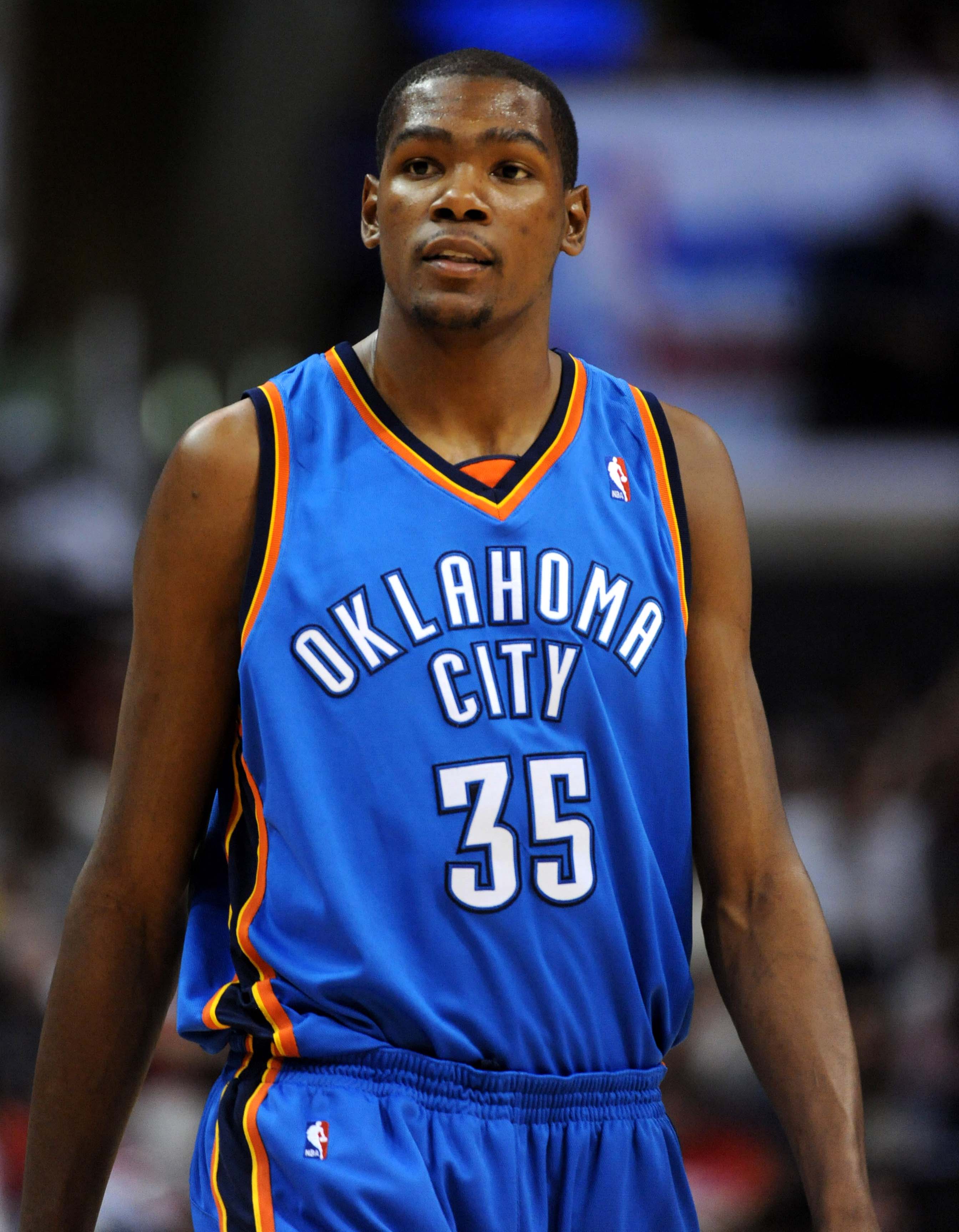
Career Stats: 27.0 PPG, 7.1 RPG, 4.2 APG, 1.1 SPG, 1.1 BPG
Career Honors And Awards: 2x NBA Champion, 2x Finals MVP, 2013-14 MVP, 11x All-Star, 9x All-NBA Team Selection, 4x Scoring Champion, 2007-08 Rookie of the Year
Kevin Durant had an exceptional season in 2014, winning his first and only MVP award as the most spectacular offensive player in the world. Durant was an absolute scoring machine during the 2013-14 season.
He led the league in scoring with an average of 32.0 points per game, showcasing his ability to score from anywhere on the court. His scoring included three-point shooting, mid-range jumpers, and the ability to drive to the basket, making him virtually unguardable.
Durant’s scoring was not just about volume; it was also about efficiency. He had an impressive field goal percentage of 50.3% and a three-point shooting percentage of 39.1%. His ability to score efficiently while carrying a heavy offensive load was remarkable.
The superstar played a pivotal role in leading the Thunder to a 59-23 regular-season record, which was one of the best in the NBA. He helped guide the team to the Western Conference Finals, where they fell short of reaching the NBA Finals but had a highly competitive playoff run regardless.
2015-2018 – LeBron James
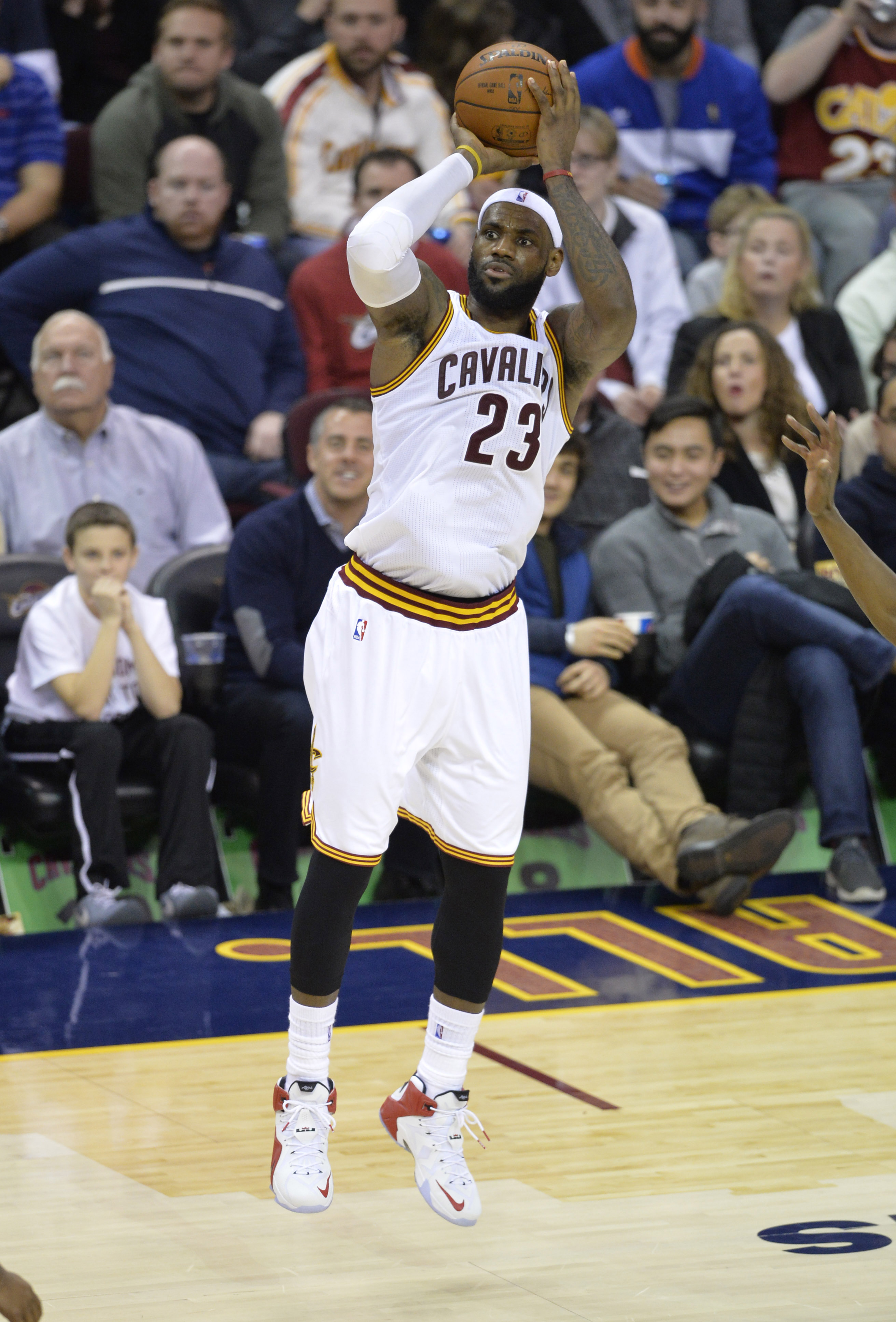
Career Stats: 27.2 PPG, 7.5 RPG, 7.3 APG, 1.5 SPG, 0.8 BPG
Career Honors And Awards: 4x NBA Champion, 4x Finals MVP, 4x MVP, 19x All-Star, 19x All-NBA Team Selection, 6x All-Defensive Team Selection, 2007-08 Scoring Champion, 2019-20 Assist Champion, 2003-04 Rookie of the Year
LeBron James returned to his perch after a one-year hiatus, with Kevin Durant leading the league in scoring and winning the MVP award. Once James returned to the Cleveland Cavaliers, those four years were simply extraordinary in terms of individual brilliance and team success.
Firstly, LeBron continued to be an elite scorer during this period, averaging 26.1 points per game. His scoring versatility was on full display, with the ability to score from all areas of the court, whether through powerful drives, three-point shooting, or post-up play.
LeBron’s playmaking ability remained one of his defining qualities. He averaged over 7 assists per game during these years, demonstrating his exceptional basketball IQ and vision. His ability to act as both a primary scorer and playmaker was unparalleled.
With the Cavs, LeBron added to his impressive list of individual achievements. He earned several All-NBA First Team selections and was consistently in the MVP conversation, starting a new era alongside Kyrie Irving and Kevin Love.
LeBron’s return to the Cavaliers in 2014 had a profound impact on the team’s fortunes. He led the Cavaliers to three consecutive NBA Finals appearances from 2015 to 2018. In 2016, he famously delivered a championship to Cleveland, marking the franchise’s first-ever NBA title after coming back from a 3-1 deficit.
During the four regular-season campaigns and playoff appearances, James showcased elite leadership and impact in what could be the best version we have seen from The King in terms of mental fortitude and experience.
2019 – Kawhi Leonard
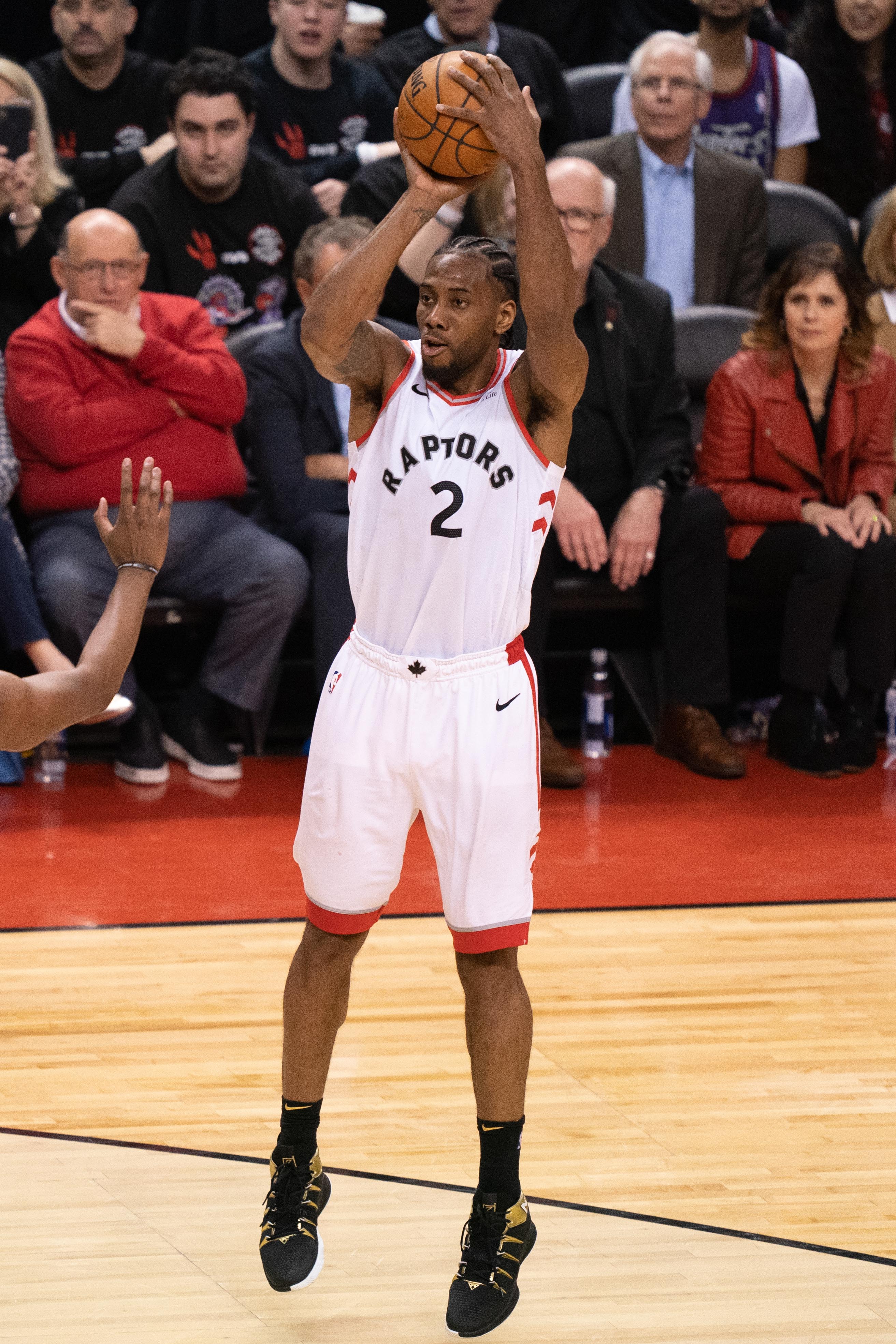
Career Stats: 19.2 PPG, 6.4 RPG, 2.9 APG, 1.8 SPG, 0.6 BPG
Career Honors And Awards: 2x Finals MVP, 5x All-Star, 5x All-NBA Team Selection, 7x All-Defensive Team Selection, 2x Defensive Player of the Year, 2014-15 Steals Champion
Kawhi Leonard had an iconic season in 2019 in his first and only season with the Toronto Raptors. During the 2018-19 season, Leonard averaged 26.6 points per game while shooting 49.6% from the field and 37.1% from beyond the arc. His scoring ability, coupled with his efficiency, made him a dominant offensive force.
Leonard was also known for his elite defensive prowess, and 2019 was no exception. He averaged 1.8 steals and 0.4 blocks per game during the regular season. His defensive skills were a major part of the Raptors’ success, and he often guarded the opposing team’s best player.
No doubt, the biggest example of Leonard dominating the game came during the end of the regular season and through the playoffs. He led the Raptors to a franchise-record 58-win season, securing the second seed in the Eastern Conference. His leadership and basketball IQ elevated the team’s performance.
Leonard’s clutch performances throughout the 2019 NBA Playoffs were legendary. His series-winning buzzer-beater against the Philadelphia 76ers in the Eastern Conference Semifinals is considered one of the greatest moments in NBA playoff history.
The superstar guided the Raptors through a historic playoff run, culminating in the franchise’s first NBA championship. His leadership and ability to rise to the occasion in critical moments were instrumental in their success.
Kawhi Leonard’s claim to being the best small forward in the NBA in 2019, particularly during his Kawhi Leonard was awarded the NBA Finals MVP in 2019, which is one of the most significant individual honors a player can achieve.
2020 – LeBron James
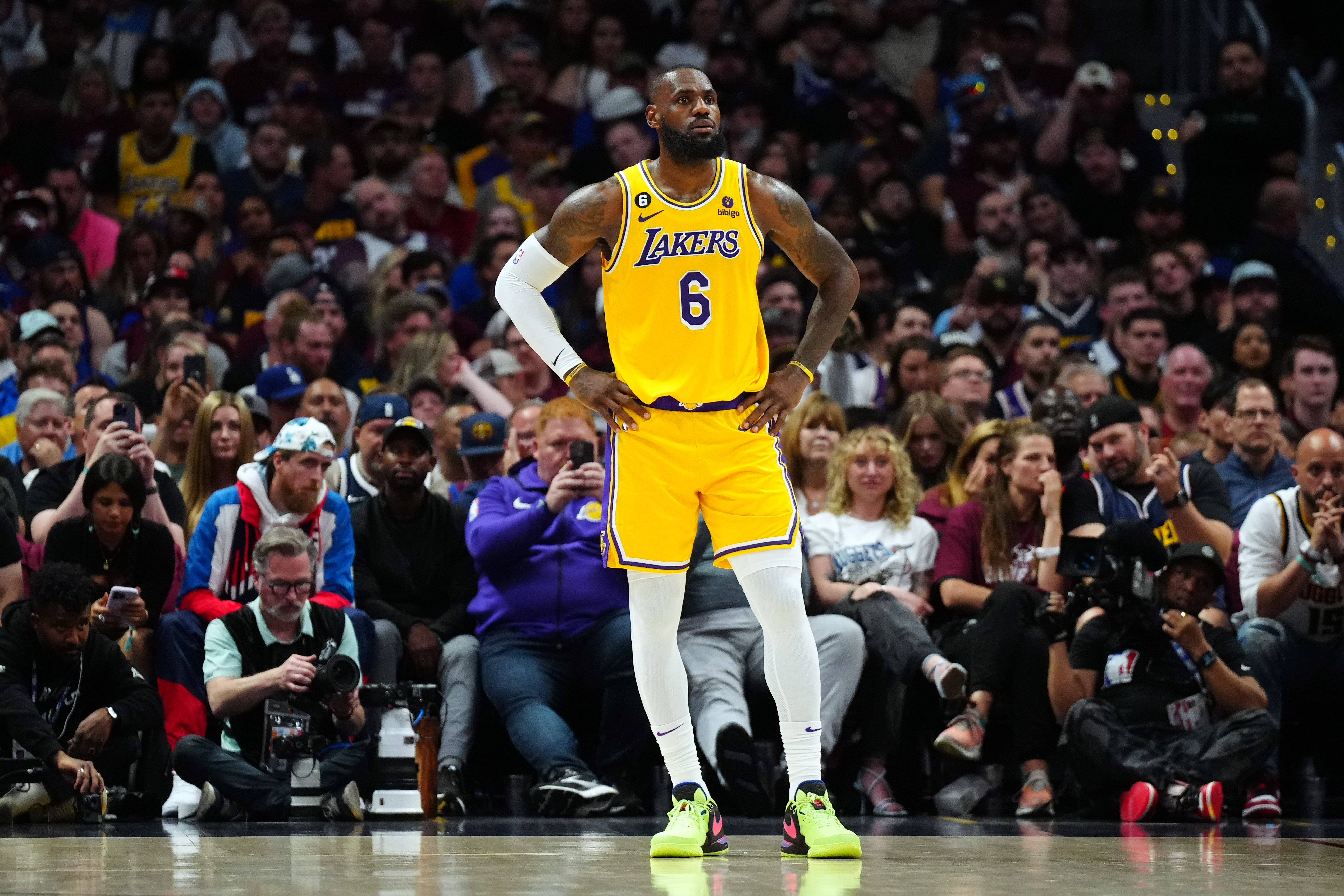
Career Stats: 27.2 PPG, 7.5 RPG, 7.3 APG, 1.5 SPG, 0.8 BPG
Career Honors And Awards: 4x NBA Champion, 4x Finals MVP, 4x MVP, 19x All-Star, 19x All-NBA Team Selection, 6x All-Defensive Team Selection, 2007-08 Scoring Champion, 2019-20 Assist Champion, 2003-04 Rookie of the Year
In the 2020 COVID-shortened season, LeBron James was the most impactful small forward in the world, even if he was the point guard in terms of playmaking and floor leadership.
He averaged 25.3 points, 7.8 rebounds, and 10.2 assists per game during the regular season. His ability to impact the game as both a scorer and facilitator was instrumental in the Lakers’ success, as he led the league in assists while also shooting 49.3% and a three-point shooting percentage of 34.8%.
LeBron’s leadership and ability to create a cohesive team environment were pivotal for the Lakers. He formed strong chemistry with his teammates, particularly with Anthony Davis, and helped guide the Lakers to the top seed in the Western Conference.
LeBron’s leadership and performance in the playoffs were extraordinary. The Lakers’ championship run in the Orlando bubble showcased LeBron’s ability to elevate his game when it mattered most.
He helped rejuvenate the franchise and played a central role in returning the team to championship contention.
LeBron James was named the NBA Finals MVP in 2020, marking his fourth Finals MVP award. He played a central role in leading the Los Angeles Lakers to their 17th NBA championship, tying the franchise with the Boston Celtics for the most in NBA history.
2021 – Jayson Tatum
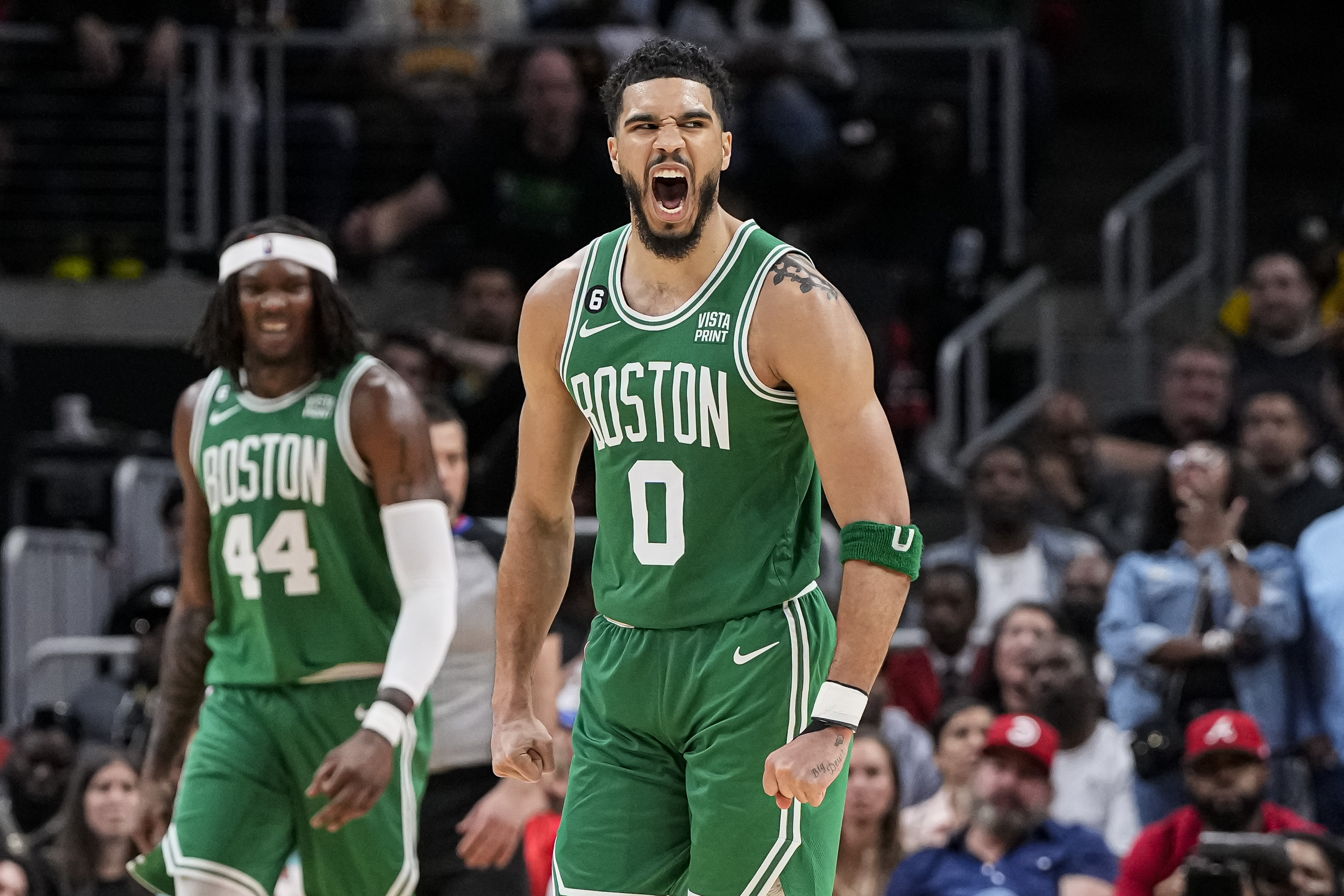
Career Stats: 22.5 PPG, 7.0 RPG, 3.3 APG, 1.1 SPG, 0.7 BPG
Career Honors And Awards: 4x All-Star, 3x All-NBA Team Selection, 2022-23 All-Star Game MVP, 2017-18 All-Rookie Team Selection
In the 2020-21 season, Jayson Tatum arrived as a legitimate superstar player. He posted a then career-high 26.4 points per game on 45.9% from the field, 38.6% from three, and 86.9% from the free-throw line.
As the superstar for the Boston Celtics, Tatum was doing great things at 22 years old. It was rare to see, but the youngster was actually very experienced with a playoff experience every year since his rookie campaign.
Still, the Celtics were not quite ready to win yet as Tatum was still very young and Jaylen Brown had not become what we know him to be. Tatum still led the Celtics into the playoffs which was a tremendous achievement for such a young star that is only getting better.
In terms of pure skill set and impact, Tatum was the best at his position since Kevin Durant was mainly a power forward throughout the year and LeBron James was consistently dealing with injuries playing only 45 games.
2022-23 – LeBron James
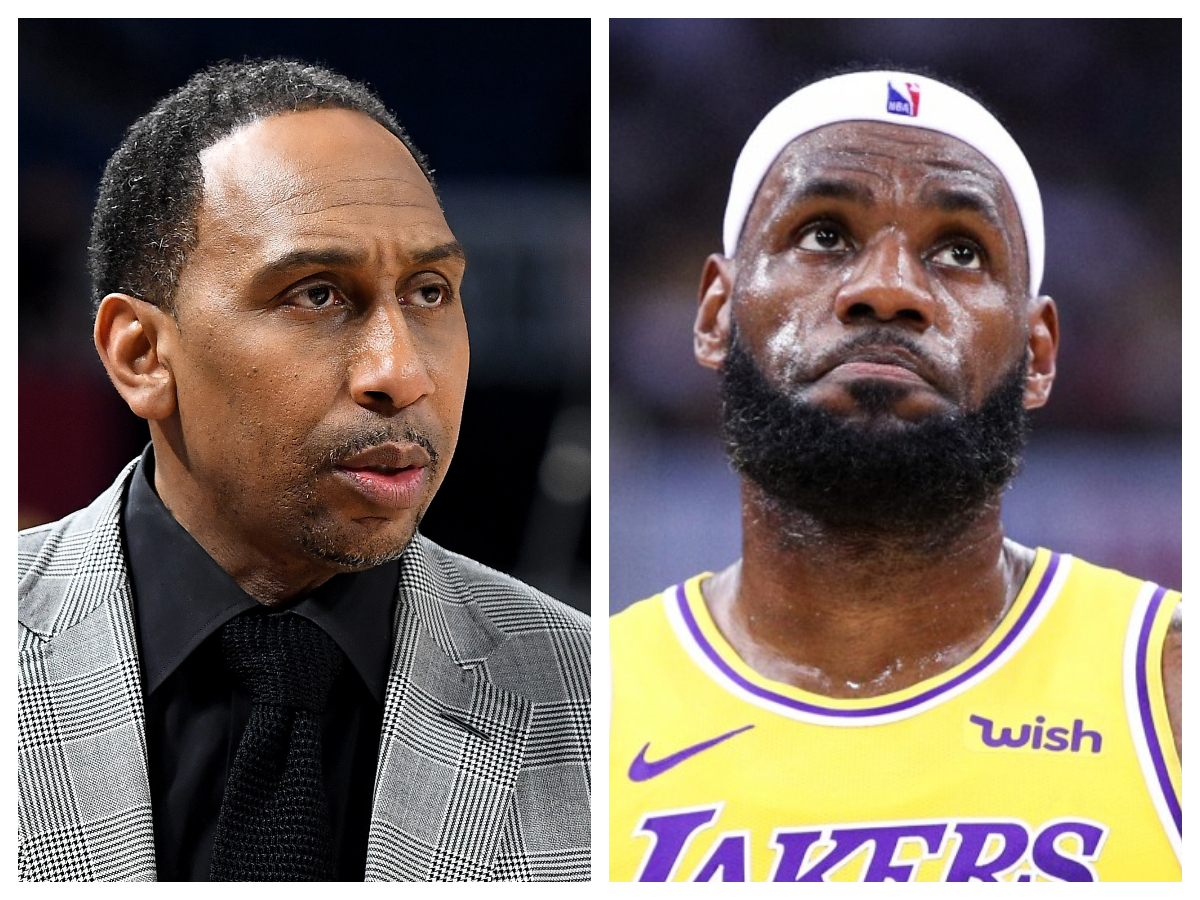
Career Stats: 27.2 PPG, 7.5 RPG, 7.3 APG, 1.5 SPG, 0.8 BPG
Career Honors And Awards: 4x NBA Champion, 4x Finals MVP, 4x MVP, 19x All-Star, 19x All-NBA Team Selection, 6x All-Defensive Team Selection, 2007-08 Scoring Champion, 2019-20 Assist Champion, 2003-04 Rookie of the Year
During the last two seasons, LeBron James has been easily the best small forward in the world. With Kevin Durant dealing with injuries (playing 55 and 47 games, respectively) and also drama (traded to the Phoenix Suns), James was steady as the driving force behind the Los Angeles Lakers.
James averaged 30.3 points, 8.2 rebounds, and 6.2 assists per game in 2022, and even if the Lakers missed the playoffs, there wasn’t a better all-around player in the world at the small forward position.
Even at 37 years old, The King was still at the top of his game offensively as he bully-balled his way in the paint time and time again as he made his 18th All-Star Team selection.
In 2023, James ended up becoming the all-time leading scorer in NBA history as he posted 28.9 points, 8.3 rebounds, and 6.8 assists per game on 50.0% from the field, 32.1% from three, and 76.8% from the stripe. Even with the all-around numbers, the Lakers struggled to win enough games as they had a 7th seed.
In the playoffs, James was elite as he posted 24.5 points, 9.9 rebounds, and 6.5 assists per game on 49.8% from the field as the Lakers pushed to the Western Conference Finals before getting swept at the hands of the championship-winning Denver Nuggets.
Even at 37 and 38 years old, James was the best small forward in the world, and time will tell if he can continue at the top of his game as he approaches 39 years old.

